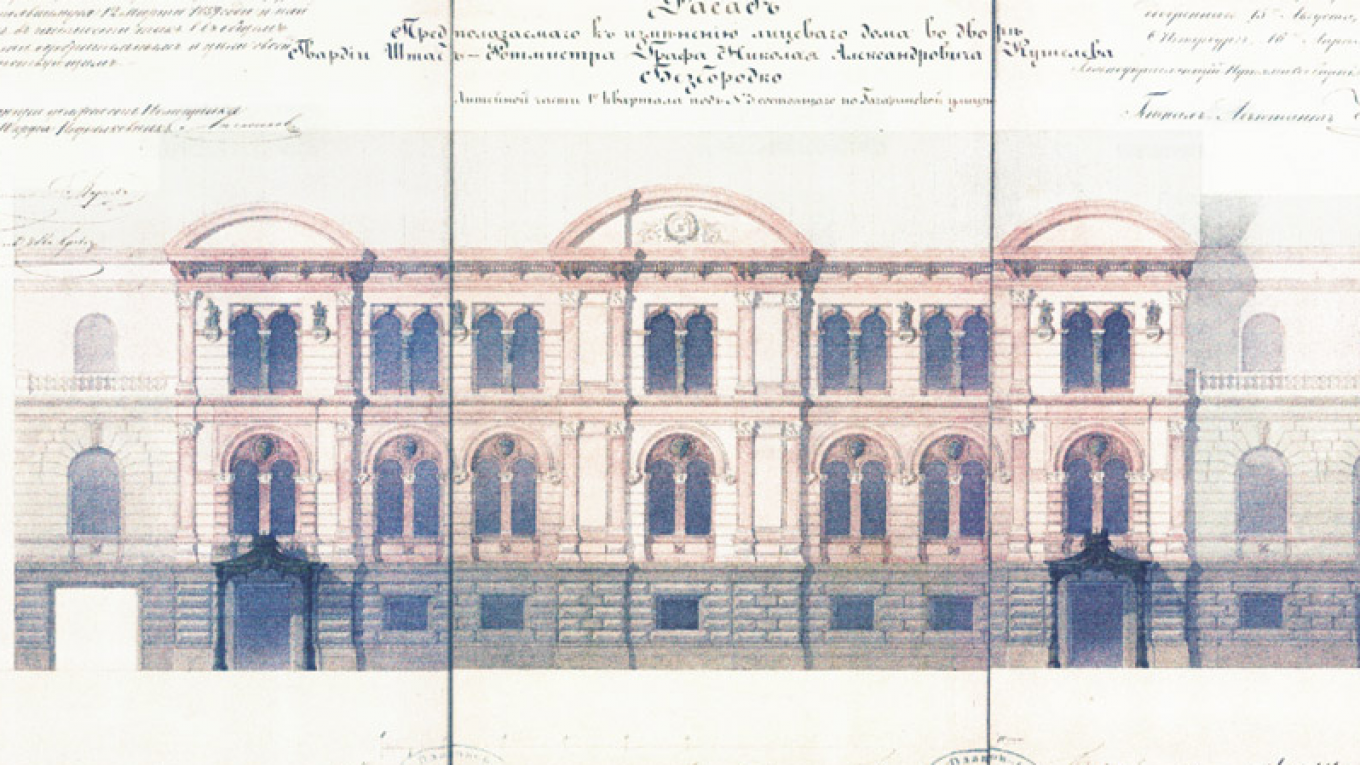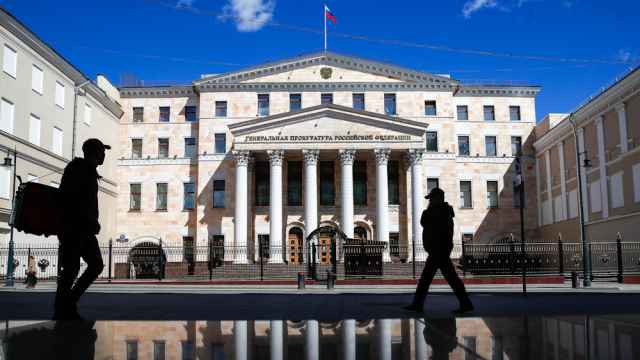On June 23, the Board of Trustees of the European University in St. Petersburg accepted the resignation of the rector, Oleg Kharkhordin.
The EUSP is a private Russian university operating as a graduate school in social sciences and humanities. It is highly respected by the international scientific community, and a significant proportion of faculty members have degrees from leading Western institutions.
The rector’s resignation occurred against a background of conflict between the EUSP and the Federal Agency for the Oversight of Education and Science, Rosobrnadzor, that led to revocation of the EUSP’s licence in March.
In the past year, the university was inspected by as many as 11 control state agencies and went through an enormous number of court hearings. The city administration unilaterally terminated the EUSP’s leasing agreement, citing improper use of the historical building that the university has been occupying since 1994.
Today the university is waiting for a court to hear its final appeal, which is scheduled for August 2017.
Last year the Education Ministry ranked the EUSP first among the country’s higher education institutions for its research activities. This year Rosobrnadzor claims that the EUSP’s license should be revoked because of a lack of sport facilities and an insufficient number of “practitioners” on the political sciences faculty.
As a result, there has been speculation about the political motivations behind the inspections and whether they were actually aimed at destroying the university as a “hotbed of liberalism.”
There was also speculation that the real purpose was to expropriate the historical mansion in the prestigious district of St. Petersburg or that it was an attack against Alexei Kudrin, who is the informal leader of the “liberal camp” in Russian political establishment and a member of the EUSP’s Board of Trustees.
Whatever the actual reason, the conflict is yet another indication of the fragility of university autonomy and of growing state pressure on the social sciences in Russia.
Political Logic vs. Scientific Logic
The social sciences are the most vulnerable to state interventions in authoritarian regimes as “ideologically significant” disciplines, expected to support the regime’s legitimacy. In Russia, the logic of politics has been infused into the logic of scholarly research. Particularly affected is the discipline of history.
"In Russia, the logic of politics has been infused into the logic of scholarly research"
Official state interpretations of the historical past are being used domestically to mobilize the population and externally to justify an aggressive foreign policy toward Russia’s neighbors.
Russian historians who openly disagree with the ideological doctrine become subject to persecution, though for different formal reasons. Thus the dismissal of the MGIMO philosophy professor Andrei Zubov, the resignation of the head of the State Archives Sergei Mironenko, and the long-term litigation against INION director Yury Pivovarov can be seen as part of the same trend.
Sociology and political science are also under pressure. The foreign agents law has classified sociological research as a political activity.
In 2016, the non-governmental pollster Levada Center, was stigmatized as a “foreign agent.” Earlier that year the law had similarly struck at the Center for Independent Social Research in St. Petersburg, the Saratov Center for Gender Studies, the Memorial rights organization and others.
Besides the direct persecution of individual scholars and organizations, changes in the institutional environment have undermined the freedom of social science research.
In 2014 the State Duma amended the Criminal Code to prohibit ”the rehabilitation of Nazism,” making it dangerous for social scientists to question any aspect of the official version of World War II.
The changes in legislation also affected the autonomy of Russian universities in general.
"Even President Putin’s repeated statements in defense of the university could not stop the unfolding of this process."
Elections for rectors’ positions have gradually been curtailed since 2005. The new laws preserve the appearance of rector elections in the universities. However, the majority of Russian universities have leaders appointed by the Education Ministry.
The rectors of the main universities of the country are appointed by the Russian president himself, which thus extends the power vertical to the scientific sphere.
Strength or Weakness?
The increasing scale of the violations of academic freedoms in Russia might at a first glance appear to speak to the strength of the Russian authoritarian regime.
However, a closer look reveals that, on the contrary, it shows up the weakness of the existing political system, which has only been aggravated by the recent wave of Western phobia and patriotic hysteria.
As was pointed out by the rector of the EUSP, it was the deep crises of the Russian supervisory and control institutions that became the primary cause of the absurd situation leading to its loss of license.
Notably, even President Putin’s repeated statements in defense of the university could not stop the unfolding of this process.
The adoption of ideologically motivated laws infringing on academic freedoms is a result of the institutional malfunction of the dependent State Duma, which is prone to patriotic paranoia.
Moreover, the increasingly common injection of “political logic” into governance processes in fact works against the state’s own agenda of improving the situation in science and education, resulting in a policymaking process that is inefficient and contradictory.
In parallel with the repeated calls for the internationalization of Russian research and improvement in the international rankings of Russian universities has come a growing securitization restricting academic mobility, limiting the international scholarly exchange, and establishing special-purpose units within scientific organizations to control relations with foreigners.
Regardless of whether state interventions are evidence of the strength or, alternatively, of the weakness of the regime, they have unfortunate and destructive effects for the social sciences. As the example of the EUSP vividly demonstrates, even the most absurd claims of the controlling agencies have the potential to lead to disastrous consequences for the best Russian universities.
As a result of the persecutions of independent organizations and critically minded social scientists, many Russian scholars have begun looking for opportunities abroad, where they can enjoy better working conditions and greater freedom of expression. Those who remain in Russia prefer to temper their criticisms and try to meet the state’s expectations.
By continuing its attacks on academic freedoms the state actually shoots itself in the foot, lowering the quality of scientific expertise. If this is the long-term trajectory of the state, negative impacts not only for the social sciences but also for the state itself can be expected.
Irina Olimpieva is a senior researcher at St. Petersburg Center for Independent Social Research
This article was first published by the Kennan Institute.
A Message from The Moscow Times:
Dear readers,
We are facing unprecedented challenges. Russia's Prosecutor General's Office has designated The Moscow Times as an "undesirable" organization, criminalizing our work and putting our staff at risk of prosecution. This follows our earlier unjust labeling as a "foreign agent."
These actions are direct attempts to silence independent journalism in Russia. The authorities claim our work "discredits the decisions of the Russian leadership." We see things differently: we strive to provide accurate, unbiased reporting on Russia.
We, the journalists of The Moscow Times, refuse to be silenced. But to continue our work, we need your help.
Your support, no matter how small, makes a world of difference. If you can, please support us monthly starting from just $2. It's quick to set up, and every contribution makes a significant impact.
By supporting The Moscow Times, you're defending open, independent journalism in the face of repression. Thank you for standing with us.
Remind me later.








